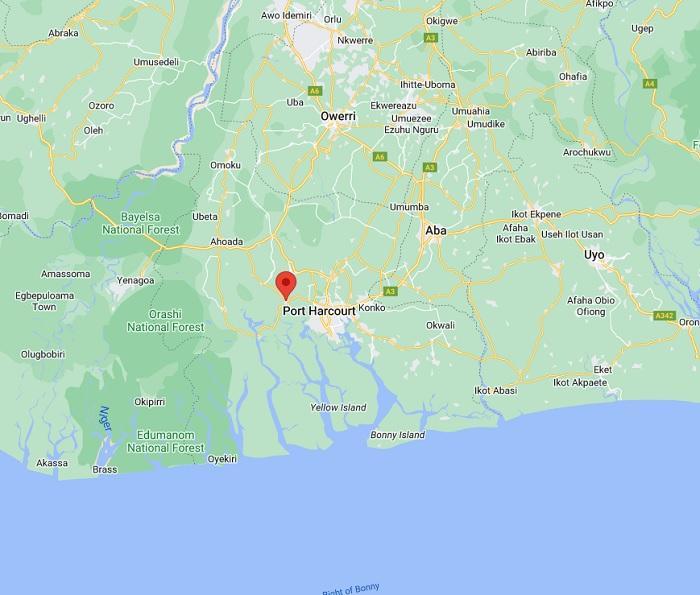The Explosion in Southern Rivers State
An explosion and fire near an illegal oil refinery site in the Niger Delta region killed approximately 12 people last Friday. Residents suggested that the death toll could even be higher.
The explosion in the Emuoha council area of the southern Rivers state occurred along a pipeline targeted by illegal refinery operators trying to steal oil. Several vehicles were destroyed in the fire, and authorities are still working to determine how many people died.
Illegal refineries are a lucrative business in Nigeria, a top oil producer. They are more rampant in the oil-rich Niger Delta region, where most of the nation’s oil facilities are located. The workers at such facilities rarely adhere to safety standards, leading to frequent fires, including one in Imo state last year in which more than 100 people were killed.
Reports suggest Nigeria may have lost approximately $3 billion worth of crude oil to theft between 2021 and 2022. Illegal operators often hide from regulators by establishing refineries in remote areas such as the one in Imo according to the Nigerian government.
The victims of this most recent explosion were mainly young people who likely intended to siphon oil from a pipeline. Residents rushed in to try to rescue some of those at the scene, and residents said the explosion was very big and shook the buildings surrounding the scene.
It’s tragic to hear of incidents like this repeatedly, and my thoughts go out to the victims and their families. These events also highlight the dangerous and often deadly work that goes into bringing oil and other resources to market. We need to ensure that all workers in this industry operate safely and that illegal operations are eliminated to prevent further loss of life.
The Problem of Illegal Refineries in Nigeria
These dangerous operations have been a long-standing problem in the country, leading to human deaths, environmental degradation, and economic loss.
Oil refineries are massive facilities where crude oil is converted into various products, including gasoline, diesel, and heating oil. Nigeria is the world’s sixth-largest exporter of crude oil, and the Niger Delta is a crucial hub for oil activities, making it one of the world’s most biodiverse ecosystems. Unfortunately, these activities have also severely impacted local communities that rely on farming and fishing, resulting in the loss of their livelihoods due to pollution.
Illegal oil refining is a practice where crude oil is siphoned off from pipelines and redirected into tanks, usually located in bushes and forests, where the crude oil is boiled at high temperatures to turn it into various petroleum products. In comparison to legal oil refineries, illegal refineries lack the necessary equipment and safety measures to protect the people and the environment, making the process extremely dangerous and often causing large explosions.
Illegal refineries are primarily located in remote areas where regulations are not enforced, and taxes are avoided, leading to losses for the Nigerian government. According to government estimates, over $3 billion worth of oil has been stolen in the last year alone. Moreover, poverty and unemployment are two significant factors that contribute to the persistence of oil theft and illegal refining. Approximately a third of people in Nigeria are unemployed, leading professionals such as photographers and computer science graduates to work in these refineries due to the lack of job opportunities.
Illegal oil refining has had a catastrophic effect on the environment, causing air, land, and water pollution that can harm the health and livelihoods of local communities. For example, it can lead to the loss of natural wildlife habitats, disruption of water cycles, and the extinction of medicinal plant species. Besides, illegal refining also affects the health and well-being of people in surrounding areas due to the release of air pollutants such as soot, which has been an ongoing problem in Nigerian cities like Port Harcourt, and smog. These pollutants can increase the risk of death from stroke, heart disease, lung cancer, and respiratory illness among those exposed.
Nigeria’s President Muhammadu Buhari has described the explosions at illegal oil refineries in recent years as a national disaster and has vowed to crack down on illegal refineries.
References:
- https://www.npr.org/2022/04/24/1094535890/explosion-at-illegal-oil-refinery-in-nigeria-kills-over-50
- https://www.theguardian.com/world/2022/apr/23/more-than-100-killed-at-nigerian-oil-refinery-blast
- https://sundiatapost.com/10-die-as-explosion-hits-shell-pipeline-in-rivers/
- https://www.globalcitizen.org/en/content/illegal-oil-refineries-nigeria-health-environment/
- https://apnews.com/article/nigeria-oil-refinery-theft-explosion-c2bb9dbe398db7f802c3526c2440cf07
- https://theconversation.com/three-things-that-can-go-wrong-at-an-illegal-oil-refinery-in-nigeria-182459










